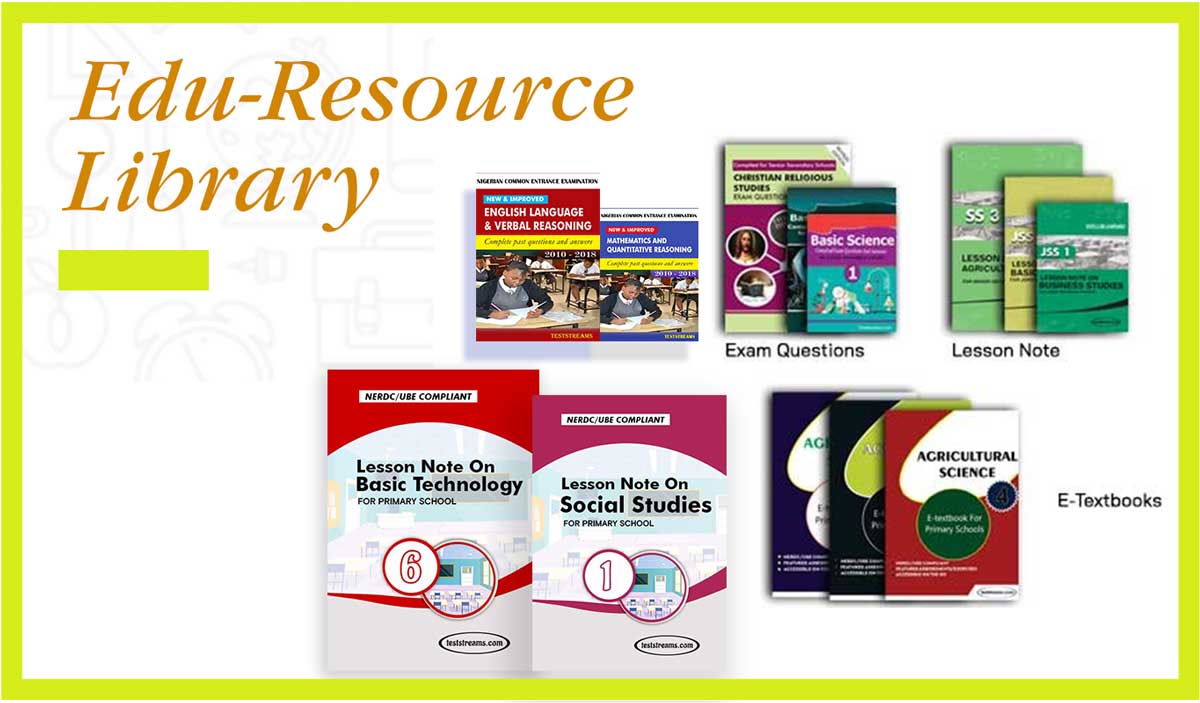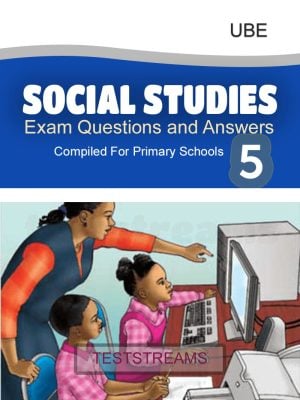BECE SOCIAL STUDIES
Feeling the pressure of the BECE Social Studies exam? You’re not alone! But worry not, with Teststreams’ comprehensive bank of BECE Social Studies past questions and answers, you can:
- Sharpen your knowledge: Test your understanding of key historical events, government structures, and social studies concepts covered in the BECE curriculum.
Samples of BECE Social Studies Past Questions and Answers
PAPER I
1. The study of man in relation to his environment, is a primary concern of____________
A. Business Studies.
B. Christian Religious Studies.
C. Computer Studies.
D. Islamic Religious Studies.
E. Social Studies.
2. Social Studies as a discipline originated from
A. America.
B. China.
C. Egypt.
D. Ghana.
E. Nigeria.
3. The following are functions of Social Studies, EXCEPT it
A. enables us to understand our culture.
B. encourages our participation in social and civic duties.
C. helps to understand how to relate well with people.
D. helps us to understand our environment.
E. makes us to know how to fight our enemies.
4. In America and Europe, Social Studies started as a school subject in the year
A.1941.
B.1944.
C.1945
D.1946.
E. 1938.
5. The following are methods of teaching Social Studies, EXCEPT.
A. discussion.
B. excursion.
C. filtration.
D. observation.
E. research.
6. In Nigeria, the first formal institution that produced Social Studies textbooks for JSS is the
A. African Church Grammar School, Aiyetoro.
B. Baptist Secondary School, Aiyetoro.
C. Comprehensive High School, Aiyetoro.
D. Rev. Kuti Memorial Grammar School, Abeokuta.
E. Rosemary Grammar School, Ilisa.
7. White and black stripe cloth is a cultural dress of the
A. Fulanis
B. Hausas.
C. lgbos.
E. Yorubas.
8. The following are environmental problems EXCEPT.
A. cloud.
B. drought.
C. erosion.
D. flood.
E. pollution.
9. Which of the following is NOT a feature of natural environment?
A. Hills B. Hospital C. Lakes D. Rivers
E. Valleys
10. Which of these minerals is mined from Enugu?
A. Coal B. Gold C. Iron-ore
D. Limestone E. Oil
11. Fulani people are mostly_________
A. carpenters. B. cattle rearers.
C. fisher men. D. hawkers.
E. traders.
12. The smallest social unit in the society is the
A. church.
B. family.
C. hamlet.
D. mosque.
E. school.
13. Which of the following religions is NOT practised in Nigeria?
A. Buddhism
B. Christianity
C. Cultism
D. Idol worship
E. Islam
14. We can conserve our mineral resources by
A. not exploiting them.
B. over- exploiting them.
C. smuggling them abroad.
D. stealing them.
E. utilising them properly.
15. The two major Nigerian rivers are __________ and __________
A. Anambra, Cross River.
B. Benue, Katsina.
C. Hadejia, Sokoto.
D. Lagos, Kwara.
E. Niger, Benue.
16. The following are reasons for rural drift, EXCEPT.
A. in search of arable land in the urban centres.
B. lack of modern infrastructures in the rural areas.
C. lack of job opportunities in the rural areas.
D. negligence of rural areas.
E. over concentration of social amenities in urban areas.
17. Which of the following is NOT the feature of rural settlement?
A. Some settlements are very small in size called hamlets.
B. The people mostly speak the same language and share the same customs.
C. The settlers of rural areas mainly depend on agriculture and live stock rearing for their livelihood.
D. There are intimate relationships amongst them
E. There are good roads and adequate medical facilities in the rural areas.
18. The term “social environment can be defined as a society of
A. animal.
B. birds.
C. human beings.
D. insects.
E. reptiles.
19. Which of the following is NOT an example of primary social groups?
A. Age-group
B. Family
C. Kinship
D. School
E. Village
20. There are two basic types of social group____and_____
A. local, international.
B. post- primary, post-secondary.
C. preprimary, primary.
D. primary, secondary.
E. state, national.
By practicing with these past questions and answers, you’ll be well-equipped to not only identify your strengths and weaknesses but also gain valuable exam-taking experience. This will boost your confidence and prepare you to ace the BECE Social Studies exam!
Click the links below to get any resources you want.
- Lesson note for primary and secondary schools
- Exam questions for primary and secondary schools
- Etext books for primary schools
- Common Entrance Math Exam Questions and Answers
- Common Entrance Questions and Answers English and Verbal
- UTME Exam Preparation
- BECE and JSCE past questions
- SSCE / WAEC Past questions









